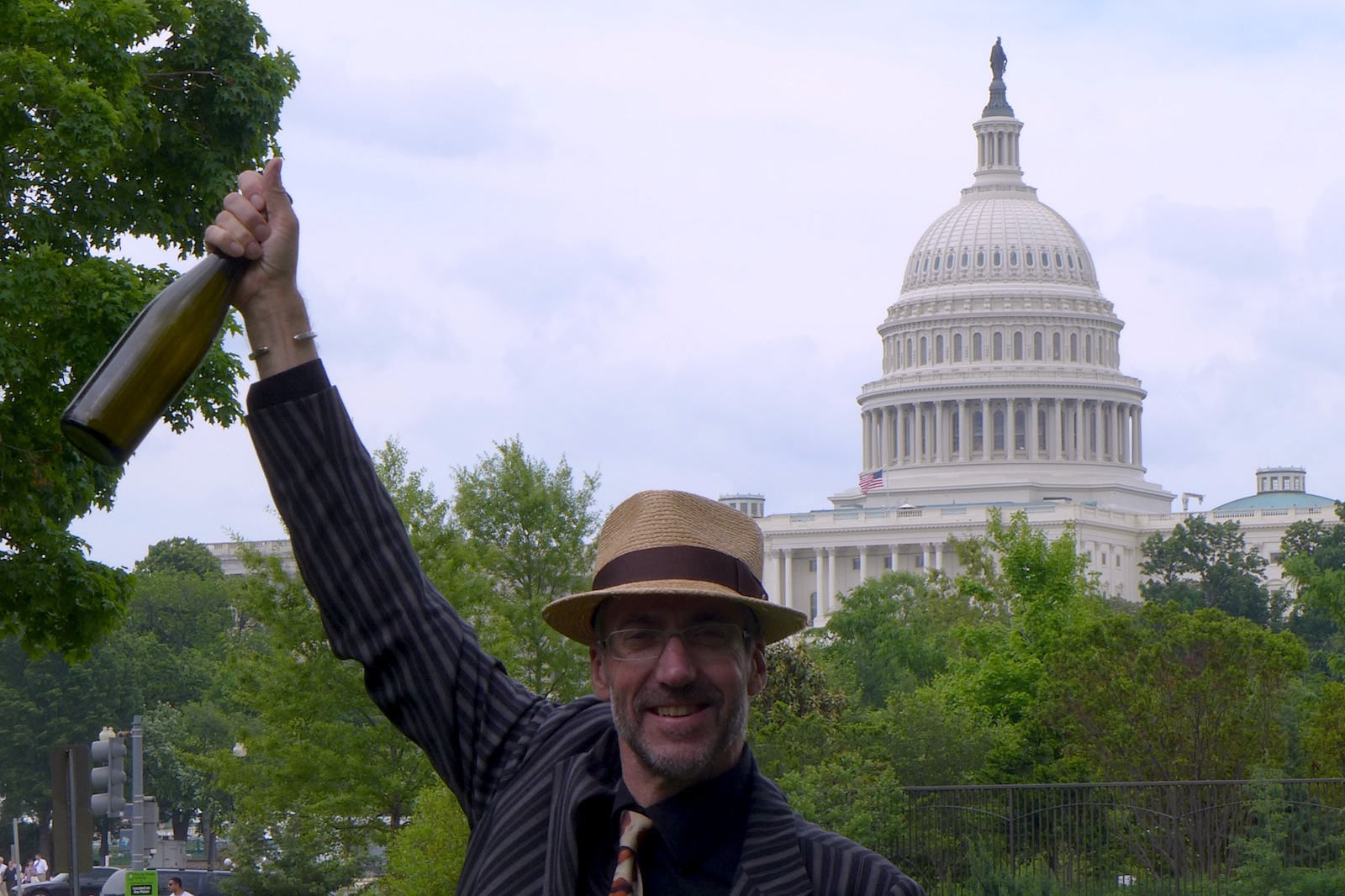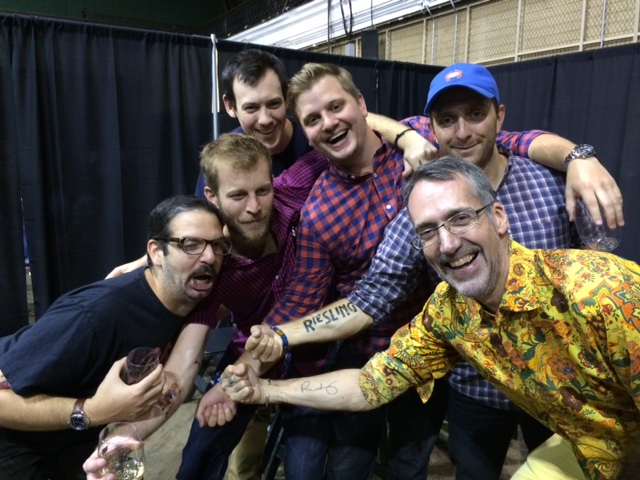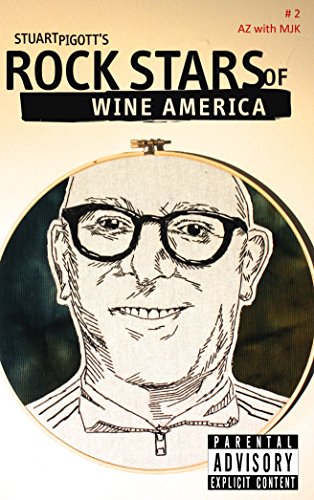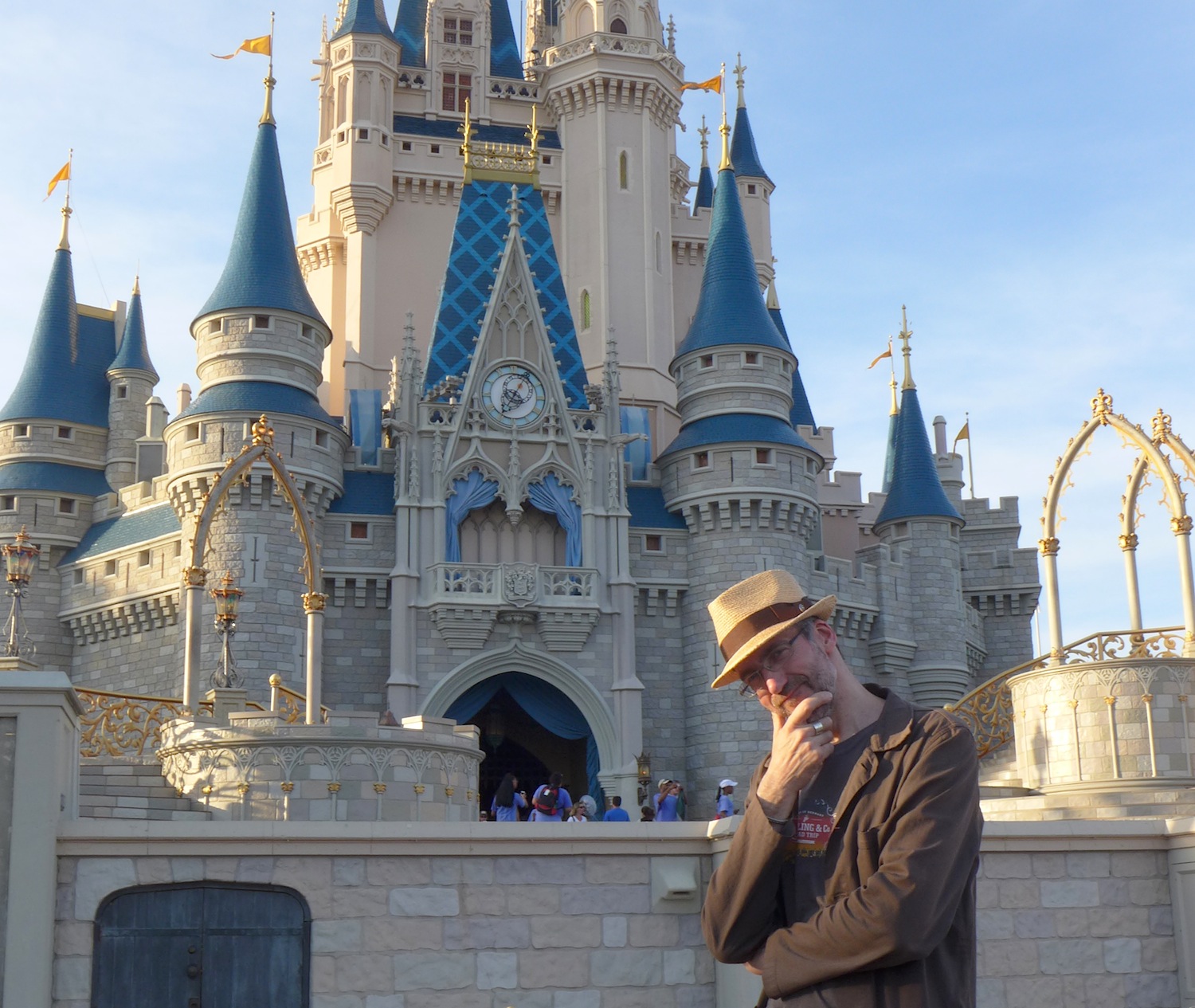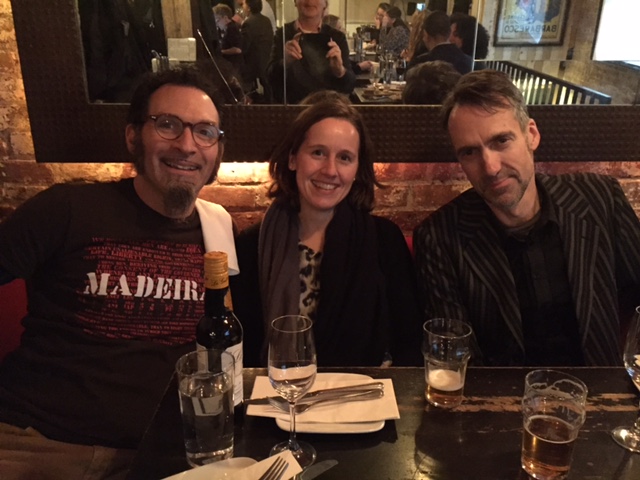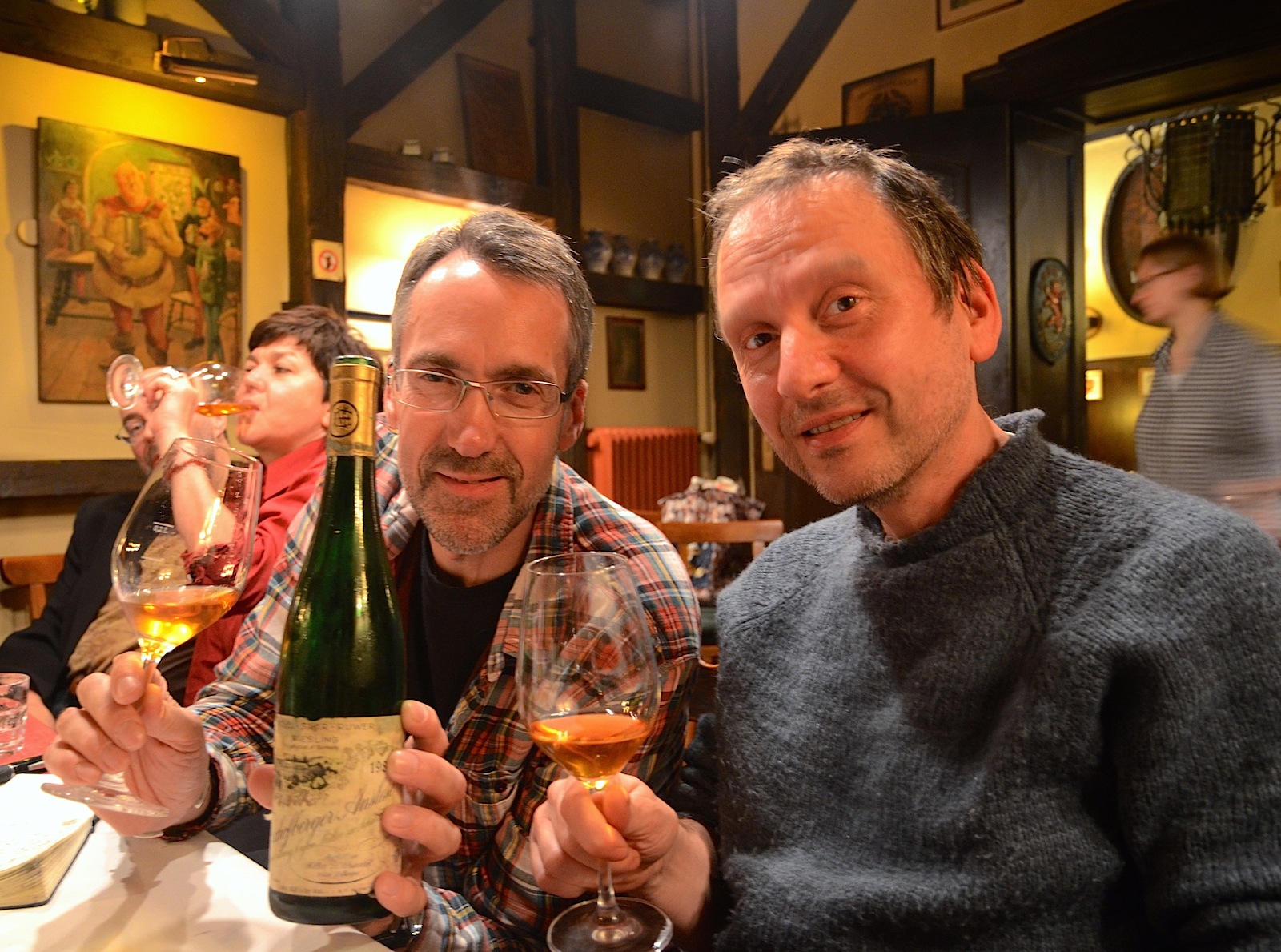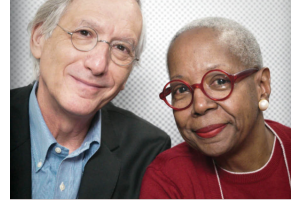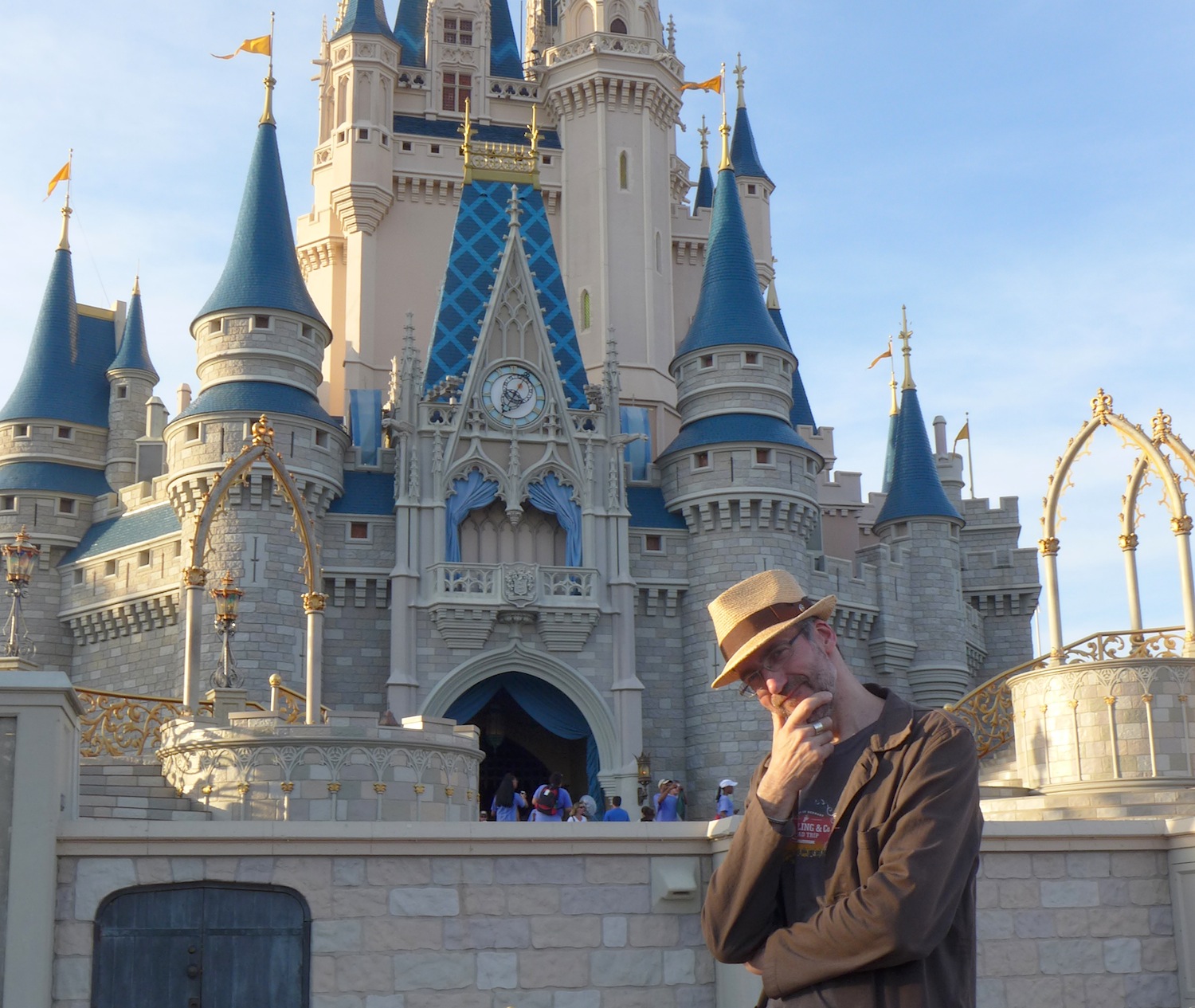
Stuart Pigott is an English wine journalist based in the US and Germany. He is author to numerous books on wine including the recently published Riesling: The Best White Wine on Earth. It is a guide to his favorite wines (there is a section in the back where he lists his top value Rieslings by category which is super helpful) - as well as a narrative history of the various wine regions where Riesling thrives. He has also self-published three very colorful books on American wine for the Kindle called Rock Stars of Wine America. Pigott's writing is an antidote to the conservative tasting note based wine writing found in the industry's top wine magazines. Colorful, bawdy and honest - he paints pictures of the outsider winemakers - the pioneers or lunatics depending on your point of view. The Kindle books are laugh-out-loud funny (though not for the faint of heart).
We talk to Pigott about his journey into wine.
So Stuart, how long have you been writing about wine?
It started a long time ago. I slipped into it sort of by accident. When I was a student in London, I had to do some jobs to keep myself afloat and one of them, a miracle, was a restaurant with a great wine list, the restaurant at The Tate Gallery, modern art gallery like the MOMA of London, employed me as barman and it was a lunchtime only job. A lot of customers were very generous and say there was this much left in the bottle of 1981 Cheval Blanc, they would say, "It's yours, take it." And the house rules said, "If they said it, it was mine."
Wow, you must have had some good wine then.
I was suddenly, all at once, hit by all of these fantastic wines. We had a great Bordeaux list, quite good Burgundy, wonderful Champagne, excellent German Riesling, and a bunch of California wines, which was very unusual back then.
I bet. You're unique in that a lot of wine writing that you see today is either focused on scores or points, and you're almost the opposite of that. You are as narrative-focused as I think I've seen anybody in the wine trade.
It's my DNA. I can't do anything about it. I'm a storyteller. Of course, if an employer absolutely demands that I give wines scores, numerical scores, I'm like, "Okay, I need the money. I'll write it." But it's the opposite of what I feel at home with.
Why is that? Why do you have a negative feeling about...
It's not so much that I'm negative about the scores, though I am very skeptical about them as they suggest an objectivity which just is not there. There is no reason why a 95-point wine from whoever it is is going to agree with your taste. No reason on earth. Rather, it's the attraction in the other direction. I spend a lot of time visiting winemakers, wine regions. I meet all these amazing people, incredible stories. It might be worth telling those stories instead of just saying, "That's a 95." I think so.
A lot of wine people, in my experience, are very focused on France and Italy and the traditional, classic wines.
Wonderful, wonderful. Nothing wrong with any of that. There's some wonderful wine and some of it is not horribly expensive, some of it is, of course. I love all of that. But those aren't the only stories out there.
Stuart Pigott at the New York Wine Riot, September 2015
You wrote about Arizona, right? You can't imagine one of these polished wine guys getting in the dirt in Arizona, can you?
Nope, nope. Nope.
How was that?
I have very much a kind of go-with-the-flow mentality, the story knows what it wants to do. I follow it rather than the other way around. Lo and behold, when I was in Arizona, all this stuff happened, and I told that story. Because first that's what it really was, and second, it read well. It's great storytelling.
So when you create books - you create actual physical books, this is your book on Riesling - but you've also done something which I think is very interesting, which is you have self-published. I imagine this gives you a lot of freedom and in the wine world, there are not a lot of places that offer that kind of outlet right now.
That is the problem I was confronted with. This book works very well. I had a great working relationship with the publisher, Abrams, but it is not always like that. And I realized these subjects, which are off the wall, which don't fit in the box - let's say it, they're light years outside the fucking box - the publishers look at them and say, "Yes, it sounds good, it reads well, but, but, but but, but, but, but." I decided to avoid all of this frustration and me annoying them by taking the most simple path and self-publishing as eBooks. It requires a minimal financial investment and also gives you the chance to get your hands on something so sexy, which is called "complete artistic freedom."
That's awesome. They're great. They're great reads. They're unlike anything else that you will read about wine anywhere else.
There's nothing else out there like that. I don't think so. Except, perhaps, in a certain way Dan Dunn's book "American Wino." That at least shows somebody else has the same basic idea as me. He's doing it rather differently, but that is also gonzo wine journalism, definitely.
This book is about Riesling. You're known as somebody who's very passionate about Riesling. What is it about Riesling that pulled you in?
The great thing about Riesling is that most of the really good wines, they're very easy to understand, and yet they are deep and complex if you're looking for that. They don't come up and clonk you on the head and say, "Here I am, I'm an incredibly important wine and if you don't take me seriously, young man, I'm gonna f- you." They say, "Here I am. Enjoy." And if you want, and you look deeper and deeper into them, you will find more and more and more. And they will give you more and more and more. That's not a bad combination.
When we interviewed the importer Terry Theise, he described Riesling as being like the independent movie that has a very limited audience. Do you think that's true?
I don't see that at all. I have to completely disagree. I have to say that Riesling is more like one of Hollywood's greatest movies. What comes to mind immediately for me is, it's a few years old now, "Shakespeare in Love." I felt that was a great Hollywood movie. It was unbelievably entertaining, but, if you think about it, it does take its subject very seriously. That is very cool.
So it's popular but intelligent at the same time.
Intelligent at the same time, yeah.
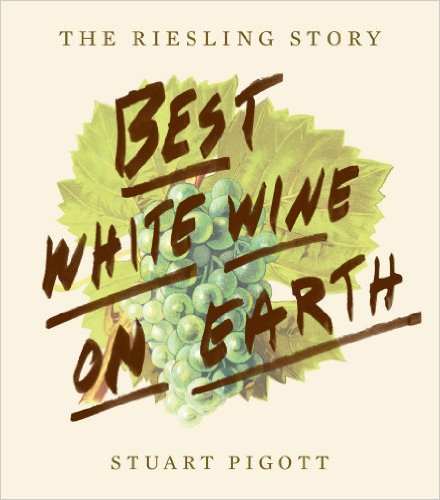
What do you feel about the wine community in general? Your focus is on Riesling. There are sommeliers who are becoming big stars right now and some of them tend to have a very similar point of view in terms of the wines they promote.
It's a herd. Sometimes when I look at them, I listen to them and I think, "It's not just a herd, they're clones." There's no real difference between them. They all seem to be patting each other on the back and telling each other what great guys and girls they are. We live in an age dominated by this strange creature, the hipster somm. From people in the trade, there's a lot of blowback, there's a lot of deeply rooted frustration about these people being completely stuck on one particular direction and being seemingly incapable of taking other wines seriously.
And those are the natural wine...
Very much, yes. It can't be funky enough, it can't be biodynamic enough. Some of these things taste a lot more sour than any Riesling. Riesling has plenty of acidity, always does, but some of this stuff is sour as hell. I take a little sip and I think, "Again, again." It smells like a hamster cage. It looks awful, it's some strange, indeterminate gray-brown color. It's hazy. I put it in my mouth, it's gritty, it's tart. There's something slightly disgusting about it. One of the descriptors I use is bat vomit. And getting that in my mouth also makes me want to retch. Wine, could, strange idea, be about pleasure. So what are these guys and girls doing?
So natural wine as a concept: it sounds good, right?
It sounds great but mostly tastes like shit.
Say I go to Whole Foods because I don't want to eat something with pesticides on it.
Yes, yes, yes.
Wine itself is not a natural product.
It's not, no. It's a cultural product. It is the manipulation of a series of natural processes, yes. It is always, always a manipulation. The hipster somms talk about amphora - clay pots, basically - as if this was not a technology. It's so old, it is not technology. It's just another technology, I'm sorry. It's an alternative, you are absolutely legitimate, but it is not something holy. No, nothing in the world of wine is holy.
So with you, you're interested in good wine, not wine that is so tied to a philosophy that it becomes more about the philosophy than about the pleasure in the wine.
You've expressed that very well. What I don't like is if I feel the philosophy is a pair of crutches and if you take them away then the wine collapses because it is nothing interesting in there. I don't see why wine should need the support of some kind of high-blown, philosophical bullshit. Don't get that. Either it tastes good to you or it doesn't. That is the most important thing, it always was, it is, and it always will be.
In your book on Riesling, you have a lot of recommendations in here. Why don't we talk about what makes some of these wines interesting? Why did you pick these wines? Maybe just talk a little bit about the stories behind these wines and what it means to you.
Well, to me, a great wine, just like a good wine, first of all, it has to taste good. That means it has to be clean, correct, and harmonious. But there are various grades of harmony. There's a simple harmony, which works nicely in a quaffing wine. Then there's something where the harmony seems multi-dimensional and every time you take a sip, you're finding something new and the wine is teasing you and tingling you and it's a mind-expanding experience. Those wines are always extremely distinctive, they don't taste like each other, even if you have some of the same words - Riesling Kabinett - on the label, there's other Riesling Kabinetts in the row. If we open all those Riesling Kabinetts and we pour them out, I promise you every customer is going to say, "Yes, they do taste different," although they belong to the same category, the same vintage, et cetera.
(Stuart with Paul Grieco and Katharina Prüm of J.J. Prüm)
What is it specifically about the Reislings you selected in your book that you love?
Well, this particular category, let's go to the back label. Here we have a Riesling Kabinett, with 8.5% alcohol. Here we have one from Fritz Haag, 8% alcohol. And here we have one from Dönnhoff at 9%. It's all under 10% alcohol and yet these wines are packed full of aroma and flavor, have a fantastic balance. They are a joy to drink.
Is there something similar between the winemakers? Is there a commonality?
There is a basic commonality in approach. This type of wine, it is low in alcohol because some part of the natural sugars in the grape have not been converted into alcohol. They have been retained in the finished wine. We have a wonderful balance in all those wines between the natural acidity and the natural grape sweetness. That to me is something very cool, but there are people out there who say, "Oh, God, it's got sweetness. Ugh, no." It is an un-wine because it is sweet. This is just bigotry, I'm afraid. That people will say, "I don't like, personally, sweet wine," is fine. Everybody has their preferences. But this turning personal preference into dogma, I'm just totally against it.
Some of the wines are from unique places. Here's a Riesling from Canada.
Yes, from Niagara in Ontario.
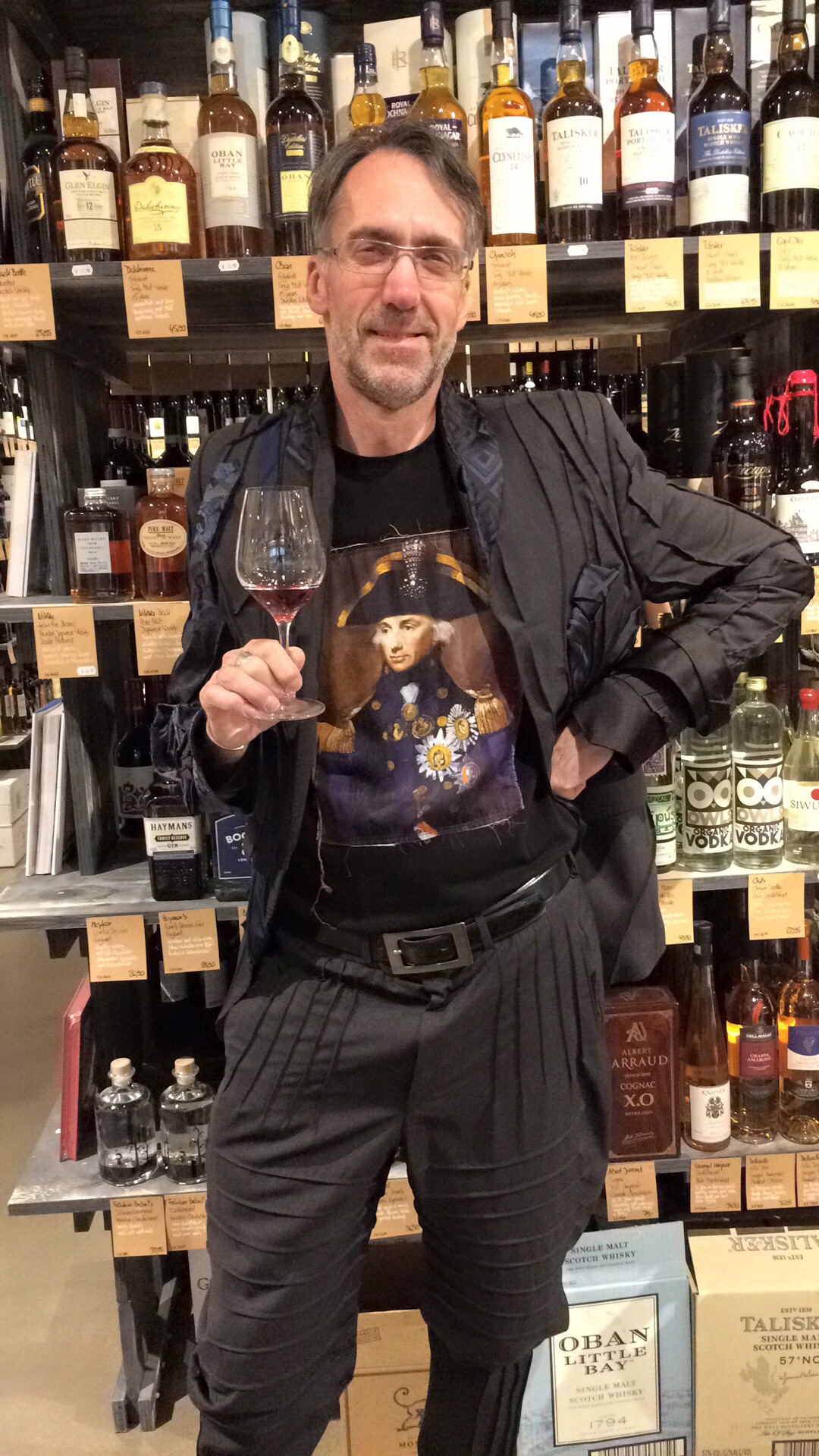
(Stuart dressed in couture from Vita Datura, Berlin)
What is it about this Riesling that brought it into the book, that made it a recommendation?
Well, Niagara is a weird place. These vineyards are basically looking north, which is the wrong direction for vineyards, you know, in the classical theory. This place has very cold winters, quite a bit colder than New York City where we're sitting now. But during the summer, it's as warm as Napa Valley. That is a pretty crazy combination. It pushes the wines in a very extreme direction and it's a real challenge for winemakers to take this extreme situation and achieve a wine which has a wonderful harmony. As with the Riesling Kabinetts, that requires a small amount of grape sweetness to be retained. Here, we're at 11.5 alcohol, this is from Cave Spring, I think the best Riesling producer in Niagara, and this has a few grams of sweetness. But if it didn't have those few, then the harmony wouldn't function. So, what Riesling winemaking requires of the winemaker is pragmatism.
The other area that you've spent quite a lot of time with is the Finger Lakes.
I'm going back there tomorrow.
What is it about the Finger Lakes that wrapped you in? Reading your eBook about it, it's quite a journey that you experienced out there.
Something is really happening in this place. If we turn the clock back exactly 100 years to this day, then we would find in wine stores like this in Manhattan, a bunch of sparkling wine from the Finger Lakes. This would be expensive. The customers would treat this in the highest esteem. It would not be a difficult sell, even at that high price. So, they were really on a roll from about 1865 to the moment that America entered the first world war and then came along Prohibition and everything went down the tubes. Step by step, a new Finger Lakes wine industry developed, most particularly from the late 1950s when they started growing the vinifera grapes, the ones which we all know the names of: Merlot and Riesling and Cabernet and Pinot Noir and all of that stuff.
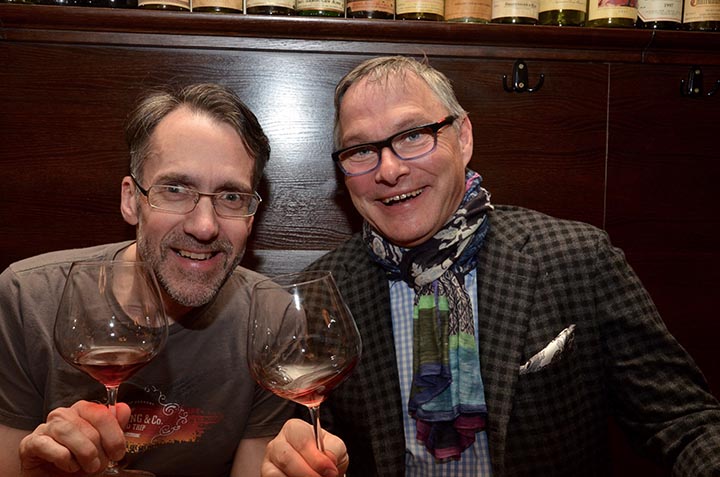
(Photo by Gerhard Gneist: Stuart with German Pinot Noir producer H.E. Dausch in the excellent Weinstein wine bar)
Talking to different wine writers, there seems to be a consensus that the winemaking has gotten a lot better over the last five years. That there's almost a professionalism that's...
Yes, yes, there's been a quantum leap in professionalism, I think. The change in the vineyard practices is even more important, I think. The new top wines are so exciting precisely because they're made from grapes of a quality which is far above what was the norm even 10 years ago.
Is that because there's new blood there? That there are these people who have ambition to make world-class wine?
Yes, yes, you're never going to make world-class wine without the ambition to do so. It needs to be in your blood. You need to say, "Of course, I have to make money, I've got to survive, but one way or another, we're doing this thing."
There are some pretty interesting personalities out there, right?
It's a weird mix, yeah.
There's a guy from Denmark via Provence via Texas...
The weirdest mix of people. Of course, that makes it a fascinating story in that most of these people get on pretty well with each other. Add something to the story as well, because my eBook is portraying particular personalities. There's one on the cover, Kelby James Russell, just 28 years old and making some of the best wines in America. There's a slew of other characters, some of whom are totally different people to him and yet these people interact with each other, they form a community and it is really as much as anything a portrait of that community.
(Photo by Gerhard Gneist: Stuart with a bottle of 1989 Auslese Gold Cap from Egon Müller, on his right Roy Metzdorf of Weinstein wine bar in Berlin)
Outside of Germany, what areas are you most excited about in terms of Riesling?
Well, we've just talked about the Finger Lakes, and that is very exciting. I think Northern Michigan is another place which is pre-destined for this grape. That's very exciting, what's happening there. That's a slightly tighter-knit community, smaller community of winemakers, but they also get on pretty well together. A tremendous openness and exchange of ideas and experiences, yeah.
Why would an Englishman in New York be doing all this crazy stuff like self- publishing eBooks?
Yes, that is a very good question and there is no easy answer to it. I came here, I have to say, I was escaping from a very bad situation: the collapse of my marriage, in Berlin where I'd been living for 20 years. New York sunk its talons into me and did not let go. While I was here, I had all these ideas and in that very New York spirit, I said to myself, "I'm doing this. I'm not hanging around, I'm doing it."
Stuart Pigott is a British wine journalist living in Berlin. He has published a number of other wine books, including Touring in Wine Country, the Wine Atlas of Germany, Planet Wine, and Life Beyond Liebfraumilch. He is currently writing weekly for jamessuckling.com.
Buy Stuart Pigott's The Best White Wine on Earth: The Riesling Story on Amazon for $17.30.
Buy Stuart Pigott's Kindle books on Amazon for $4.99:
ROCK STARS OF WINE AMERICA #3: FLXtra with KJR - This is a Love Story
ROCK STARS OF WINE AMERICA #2 AZ w/MJK: I Could Drink a Case of You
Read Stuart Pigott on Grape Collective:
Read Part I of the series: The Rise of The Hipster Sommelier
Read Part II: The Rise of the Hipster Sommelier Part II
Read Part III: Rise of the Hipster Sommerlier Part III
